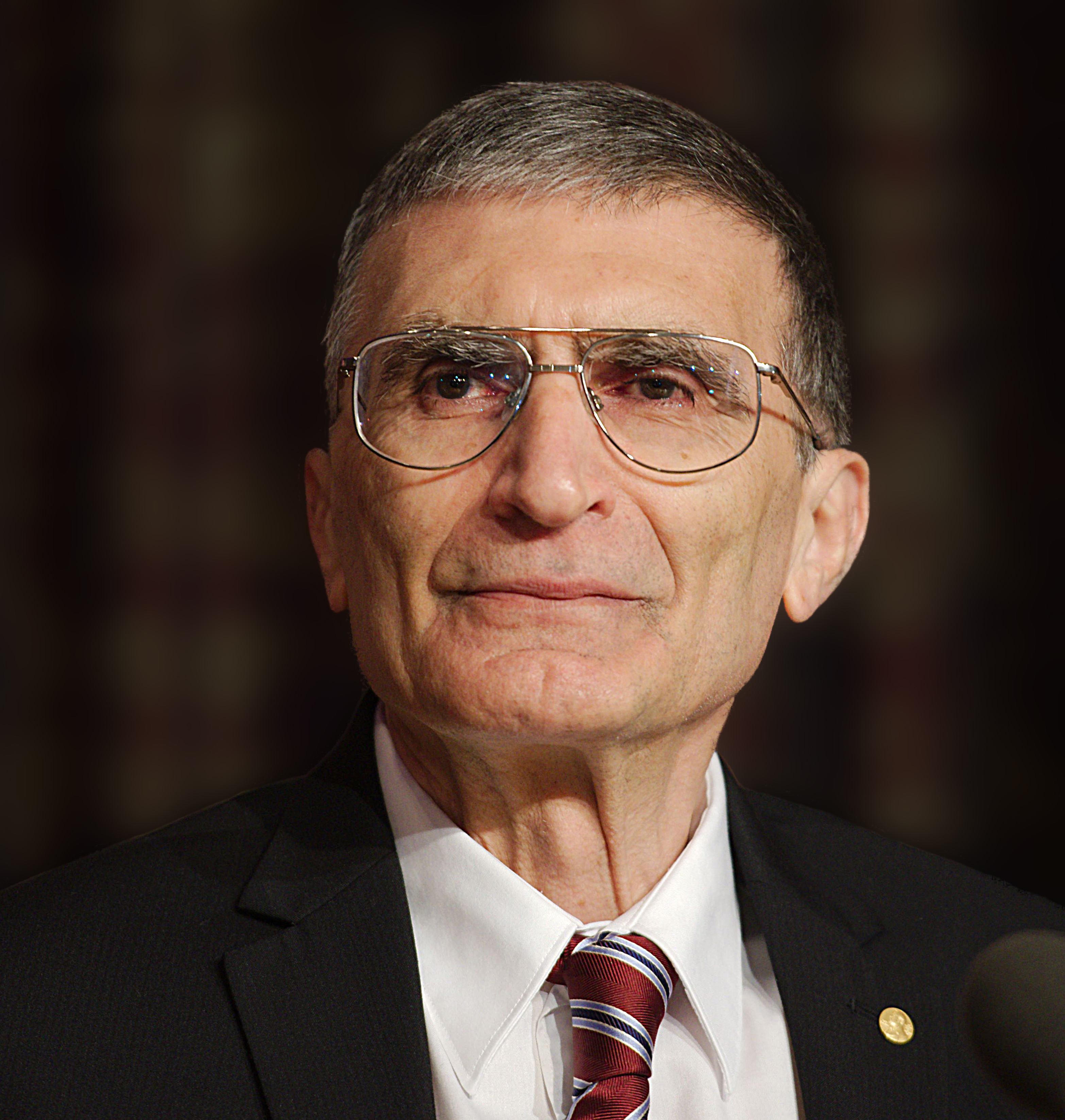Aziz Sancar
Aziz Sancar (born September 8, 1946) is a prominent Turkish-American biochemist and molecular biologist who has made significant contributions to the field of DNA repair, cell cycle, and circadian rhythm. His groundbreaking work on the mechanisms of nucleotide excision repair (NER), a process cells use to repair damaged DNA, earned him the Nobel Prize in Chemistry in 2015, which he shared with Paul Modrich and Tomas Lindahl. Sancar's research has not only advanced our understanding of how cells maintain their genetic integrity but also has implications for cancer research and treatment.
Early Life and Education[edit | edit source]
Aziz Sancar was born in Savur, Mardin Province, Turkey. He grew up in a family of seven children and developed an interest in science at an early age. Sancar attended Istanbul University, where he earned his M.D. in 1969. He then pursued further studies in the United States, obtaining a Ph.D. in molecular biology from the University of Texas at Dallas in 1977. His doctoral research focused on photolyase and the repair of ultraviolet (UV) damaged DNA.
Career and Research[edit | edit source]
After completing his Ph.D., Sancar conducted postdoctoral research at Yale University, where he began his pioneering work on nucleotide excision repair. In 1982, he joined the faculty of the University of North Carolina at Chapel Hill, where he has spent much of his career. At UNC, Sancar and his research team have elucidated the molecular mechanisms of NER, discovering how cells detect and repair bulky DNA lesions caused by UV light and certain chemicals.
Sancar's work has extended beyond NER to include studies on the circadian clock, the internal mechanism that regulates the sleep-wake cycle and other rhythmic physiological processes. He has investigated how the circadian clock influences DNA repair processes, shedding light on the interplay between cellular repair mechanisms and circadian rhythms.
Awards and Honors[edit | edit source]
Aziz Sancar's contributions to science have been recognized with numerous awards and honors, including the Nobel Prize in Chemistry in 2015. He is also a member of the National Academy of Sciences and has received the Gairdner Foundation International Award and the American Society for Biochemistry and Molecular Biology's Merck Award, among others.
Personal Life[edit | edit source]
Aziz Sancar is married to Gwen Boles Sancar, a professor of biochemistry and biophysics. Together, they have contributed to the establishment of the Aziz & Gwen Sancar Foundation, which aims to promote education and cultural exchange between Turkey and the United States.
Legacy and Impact[edit | edit source]
Aziz Sancar's work has had a profound impact on the fields of biochemistry and molecular biology, particularly in our understanding of DNA repair mechanisms. His research has paved the way for new approaches to cancer therapy, including the development of drugs that target DNA repair pathways. Sancar's achievements serve as an inspiration to scientists around the world, demonstrating the importance of basic scientific research in addressing complex biological and medical challenges.
Search WikiMD
Ad.Tired of being Overweight? Try W8MD's physician weight loss program.
Semaglutide (Ozempic / Wegovy and Tirzepatide (Mounjaro / Zepbound) available.
Advertise on WikiMD
|
WikiMD's Wellness Encyclopedia |
| Let Food Be Thy Medicine Medicine Thy Food - Hippocrates |
Translate this page: - East Asian
中文,
日本,
한국어,
South Asian
हिन्दी,
தமிழ்,
తెలుగు,
Urdu,
ಕನ್ನಡ,
Southeast Asian
Indonesian,
Vietnamese,
Thai,
မြန်မာဘာသာ,
বাংলা
European
español,
Deutsch,
français,
Greek,
português do Brasil,
polski,
română,
русский,
Nederlands,
norsk,
svenska,
suomi,
Italian
Middle Eastern & African
عربى,
Turkish,
Persian,
Hebrew,
Afrikaans,
isiZulu,
Kiswahili,
Other
Bulgarian,
Hungarian,
Czech,
Swedish,
മലയാളം,
मराठी,
ਪੰਜਾਬੀ,
ગુજરાતી,
Portuguese,
Ukrainian
Medical Disclaimer: WikiMD is not a substitute for professional medical advice. The information on WikiMD is provided as an information resource only, may be incorrect, outdated or misleading, and is not to be used or relied on for any diagnostic or treatment purposes. Please consult your health care provider before making any healthcare decisions or for guidance about a specific medical condition. WikiMD expressly disclaims responsibility, and shall have no liability, for any damages, loss, injury, or liability whatsoever suffered as a result of your reliance on the information contained in this site. By visiting this site you agree to the foregoing terms and conditions, which may from time to time be changed or supplemented by WikiMD. If you do not agree to the foregoing terms and conditions, you should not enter or use this site. See full disclaimer.
Credits:Most images are courtesy of Wikimedia commons, and templates, categories Wikipedia, licensed under CC BY SA or similar.
Contributors: Prab R. Tumpati, MD




